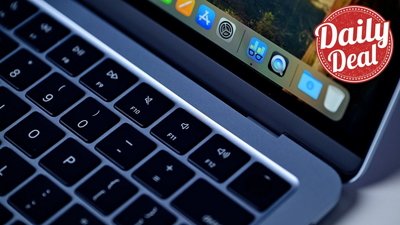President Donald Trump has signed the bipartisan Music Modernization Act into law, reforming how songwriters and performers are reimbursed for their work in an age of increasing media streaming versus physical media ownership.
The Music Modernization Act aims to perform a number of functions to update existing music licensing laws. Specifically it combines the CLASSICS Act that applies to works written or recorded before 1972, the Fair Play Fair Pay Act, Musical Works Modernization Act for songwriters and publishers, and MP Act for producers and engineers.
The bill creates a blanket mechanical license and a collective for its administration, as well as changing how courts can determine rates of pay. The bill also ensures performance rate hearings between rights organizations BMI and ASCAP, as well as licensees, rotate across all U.S. Southern District Court of New York Judges, rather than the current system where cases are assigned to just two judges.
"The Music Modernization Act is now the law of the land, and thousands of songwriters and artists are better for it," said RIAA President Mitch Glazier. "The result is a music market better founded on fair competition and fair pay. The enactment of this law demonstrates what music creators and digital services can do when we work together collaboratively to advance a mutually beneficial agenda."
Prior to hitting the president's desk, the legislation went through a fast-track process for approval. At the end of the process, 82 senators signed on as co-sponsors of the bill, while the remaining 18 senators stayed silent while approving it.
One major change that did occur during its time in the Senate is that the bill itself has been renamed the Orrin G. Hatch Music Modernization Act, honoring Utah's Republican senator who helped introduce the bill, and will be retiring this year at the end of his term.
The act also eliminates part of the Digital Millennium Copyright Act of 1998 that establishes additional considerations for "pre-existing digital services" that are not provided to other digital services when rates are set, such as music streaming services like Apple Music. There is also the establishment of royalties for labels, artists, and musicians to be paid by digital services for any master recordings produced prior to February 15, 1972.
To Apple Music and its streaming competitors, the bill also adds in protections, in that the services cannot be sued for damages over royalties, so long as they comply with the law and create a database of authors and composers for all hosted music. This would help eliminate the practice of reimbursement suits against some streaming services, which have occurred in the past.
For example, Pandora settled a 2015 royalties lawsuit from major record labels over pre-1972 recordings for $90 million. Another early 2017 lawsuit demanded $1.6 billion from Spotify for claims of copyright infringement for tens of thousands of songs.
For the music industry, the bill stands to improve payments to songwriters and artists, who have previously complained about the extremely low rates they are being paid. While the bill won't change the value paid per stream by any large amount, the mechanisms it seeks to put in place aims to ensure payments do get paid.
"Songwriters have suffered long enough and this bill will allow them to be paid fairly by the streaming companies that rely on their work," said NMPA chairman Irwin Robinson, calling the passage "the most exciting development I've seen in my career."
SoundExchange president and CEO Michael Huppe said in a statement "The future of the music industry got brighter today. Creators of music moved one step closer to getting paid more fairly."
None of the streaming services, including Apple. had anything substantive in the way of complaints or opposition.
 Mike Wuerthele
Mike Wuerthele







-m.jpg)






 Malcolm Owen
Malcolm Owen
 William Gallagher
William Gallagher

 Wesley Hilliard
Wesley Hilliard



 Christine McKee
Christine McKee



-m.jpg)




16 Comments
Taylor Swift may be very conflicted today...
Anything the RIAA says is in the best interest of the artists is suspect in my book. And of course this means price increases all around. Do you really think the streaming services are not going to pass any fee increases on to their customers? Plus now we will a situation where an artist goes and cries to a judge if he/she wants more money and the government will set fees instead of the market. What’s next? A "streaming neutrality" law that says streaming services have to carry everybody’s albums no matter what?
So, what does this bill mean to me in simple English?
I'm all for "metered" listening. Why should I have to pay $9.99 per month for Apple Music when I might listen to tens of songs at the most? I'm helping pay for another listener who streams Apple Music 24/7 and listens to thousands of songs per month.